System Dialog
Food City wants to support your health goals. Our Pick Well program gives you easy resource to identify healthful choices in our stores and online.
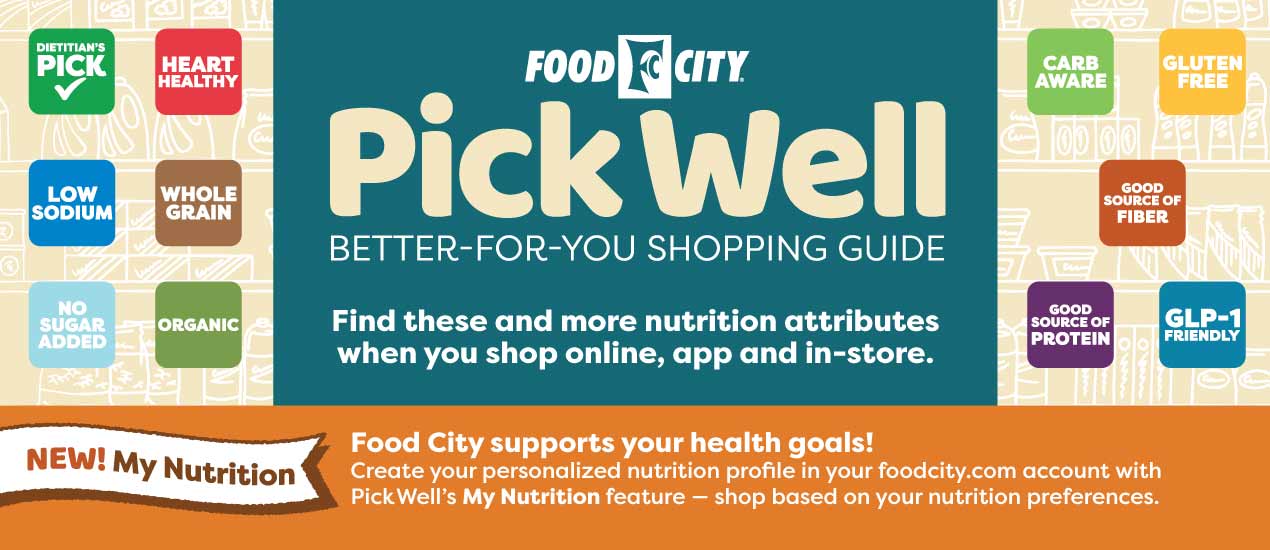
Navigating how to eat well can feel like an overwhelming task. The Food City Pick Well program highlights “better-for-you" buys that can simplify shopping for your health. By analyzing ingredients, portion sizes, and the nutrient content of foods we select items that receive tags instore and online. Each of our highlighted attributes are developed based on recommended standards by the Food and Drug Administration (FDA) and align with the most current Dietary Guidelines for Americans.
The foods and beverages that people consume have a profound impact on their health. Food City strives to help bridge the connection between food and health—and hopes that Pick Well can provide guidance for a healthy dietary pattern.
Shopping for your health just got smarter. Food City’s Pick Well program highlights better-for-you choices with shelf tags like “Heart Healthy,” “No Sugar Added,” and “Dietitian’s Pick.” Now, with our new My Nutrition feature, you can personalize those tags to match your unique dietary needs. Whether you're gluten-free, vegan, low sodium, or managing diabetes, My Nutrition filters products across our website, app, and stores to fit your goals — automatically.
✅ Tailor your grocery experience
✅ Save time with filtered recommendations
✅ Shop confidently with dietitian-backed guidance
Each of these icons highlight a different important health or nutrient claim that meet specific standards as regulated by the Food and Drug Administration (FDA), so you can trust that information.
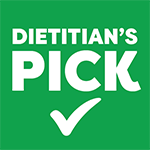
A dietitian is a food and nutrition expert who can translate the science of nutrition into practical solutions for healthy everyday living. The Dietitian Pick tag will highlight “better for you” options throughout the store, making it feel like you have a dietitian with you while you shop.
• The Dietitian’s Pick shelf tag will identify foods that are moderate in sodium, low in added sugar, and low in saturated fat while offering healthy oils.
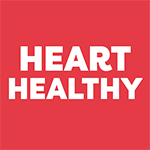
Cardiovascular Disease (CVD) is a general term for conditions affecting the heart or blood vessels. Heart Disease remains the number one cause of death in the U.S. accounting for in 1 in every 4 male deaths and 1 in every 5 of female deaths each year. Modifying lifestyle factors, like food choices, can assist in lowering the risk of heart disease.
• The Heart Healthy shelf tag will indicate foods that are lower in total fat, saturated fat, and cholesterol. Foods will also be moderate in refined sugars and sodium. Products that are derived from grains will be whole grain choices.
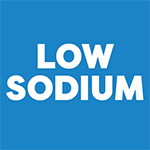
Americans eat on average about 3,400 milligrams of sodium per day. However, the Dietary Guidelines for Americans recommends adults limit sodium intake to less than 2,300 milligrams per day—that’s equal to about 1 teaspoon of table salt. Sodium is utilized as a preservative and to add flavor, especially to convenience and packaged foods.
• Foods with the Low Sodium shelf tag will contain 140 milligrams of sodium or less per serving.
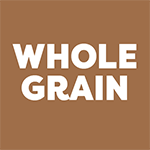
Consuming whole grains is linked with reducing the risk of heart disease, stroke, certain cancers, diabetes, and obesity. Most Americans are not consuming enough whole grains. The benefit of whole grains is that it contains all three parts of the grain -which promotes optimal benefit from fiber and nutrients. The Dietary Guidelines for Americans recommended making at least half of the grains you consume per day sources of whole grains.
• The Whole Grain shelf tag means that the food identified will contain whole grains as certified by a Whole Grain Stamp or feature whole grain as the first ingredient. Look for the Whole Grain tag when shopping cereals, pasta, rice, and other grain-based dishes.

Added sugars include sugars that are added during the processing of foods such as commercial sweeteners, sugars from syrups and honey, and sugars from concentrated fruit or vegetable juices. They do not include naturally occurring sugars that are found in items such as milk, fruits, and vegetables. The Dietary Guidelines for Americans recommend limiting calories from added sugars to less than 10 percent of total calories per day.
• The No Sugar Added tag indicates products that are produced without the use of added sugar. Products must contain no added sugar, but this does not mean these products are a low-calorie food.
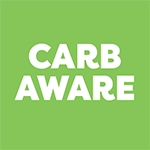
If you have been recommended to follow a modified carbohydrate diet this tag can assist with highlighting carbohydrate-controlled items.
• The Carb Aware shelf tag indicates products with 0 – 7 grams of carbohydrate per serving.
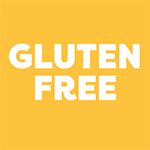
Gluten is a naturally occurring protein found in wheat, barley, and rye.
Items designated as Gluten Free will either be certified gluten free, identified gluten free by the manufacturer or naturally gluten free as assessed by the ingredient line, and do not report wheat as an allergen.
Please review all labeling information on the actual product label and contact the manufacturer with questions about food sensitivities.
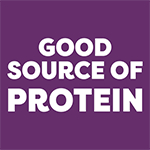
Protein is an essential nutrient that assists with promoting satiety and can promote blood sugar stabilization. High protein diets also help enhance the thermic effect of food, or the calories burned during digestion. Including a variety of different protein foods from animal and plant sources will help meet nutritional needs.
• Foods that receive this label will provide at least 10% of the daily value for protein

Fiber is part of plant foods that the body is unable to digest and absorb. Higher fiber intake is associated with greater longevity, reduced risk of many diseases, including type 2 diabetes and heart disease, and improved overall health.
• Foods that receive this tag will provide at least 10% of the daily value for fiber per serving.

Organic refers to a certification label that signifies crops, livestock, and food handling practices comply with the standards set by the U.S. Department of Agriculture (USDA). To qualify as organic, crops must be grown using only approved substances primarily non-synthetic fertilizers and pesticides. Additionally, the farmland must be free from any prohibited chemicals for a minimum of three years before it can be used for organic production.

GLP-1 Friendly refers to foods that support the effects or goals of GLP-1 (glucagon-like-peptide-1) receptor agonists medications commonly used to manage blood sugar and aid in weight loss.
• Foods that may be identified as GLP-1 Friendly include fruits and vegetables, whole grains, legumes, eggs, dairy and other foods with more protein and fiber.
The customer is responsible for verifying the ingredients and other nutritional data in the information panel of the product labels before and following purchase, as the manufacturer may change such information from time to time.
This service is being provided by third-party providers. Food City expressly disclaims responsibility for any liability, loss or damage caused or alleged to be caused, directly or indirectly, because of Customer’s use of these services.